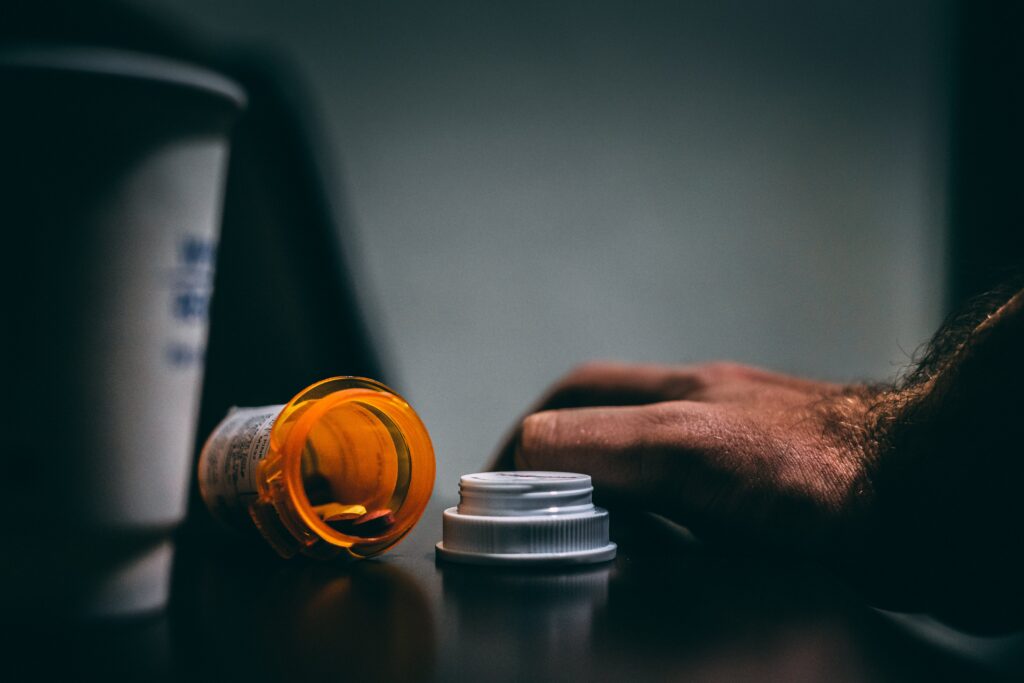Fair play and integrity are fundamental values of sport. They guarantee fair competition in which every athlete can demonstrate his or her skills on an equal footing. However, doping threatens these essential values. By using banned substances to enhance their performance, athletes who use doping substances, transgress these principles, compromising the fairness of competition and undermining confidence in sport.
The motivations behind doping are complex. Intense pressure to perform and fierce competition can drive athletes to seek an illegitimate advantage. Despite the legal and health risks, doping can seem tempting because of the financial rewards and recognition.
History and development of anti-doping regulations
Doping as we know it today really came into its own in the 20th century. The most notorious case is probably that of British cyclist Tom Simpson, who died in the 1967 Tour de France as a result of using doping products. This tragic incident led to the creation of the first list of banned substances by the International Olympic Committee (IOC).
Over the years, doping has become increasingly sophisticated. In response to this growing threat, the IOC established the first medical commission in 1967, laying the foundations for international anti-doping regulations.
1988 marked a turning point in the fight against doping, with the scandal involving Canadian sprinter Ben Johnson at the Seoul Olympic Games. The athlete, who had won the gold medal in the 100-meter race, was disqualified after testing positive for an anabolic steroid. This incident raised global awareness of the extent of the doping problem in sport.
The Festina affair during the Tour de France in 1998 highlighted the existence of organized doping within sports teams. The discovery of doping products in a Festina team car led to the arrest of several team members and the team’s exclusion from the Tour.
These and other major incidents underlined the need for a unified, global approach to the fight against doping. As a result, the World Anti-Doping Agency (WADA) was established the following year, in 1999, and the World Anti-Doping Code came into force in 2004, putting in place a set of universal anti-doping rules for all sports and all countries.
Prohibited substances and doping methods
Prohibited methods and substances: categories and dangers
Prohibitions in sport are grouped into several categories, each associated with its own dangers and consequences for health. These include :
- Anabolic steroids: These substances are used to increase muscle mass and strength, but can lead to serious health problems such as cardiovascular disease, liver dysfunction and psychological disorders.
- Peptide hormones, growth factors and related substances : These products are used to enhance recovery and performance, but can lead to side effects such as cardiovascular disorders, insulin resistance and an increased risk of cancer.
- Beta-2 agonists: Used to treat asthma, some of these drugs can increase muscle mass and endurance if taken in large quantities, but they can also cause heart problems.
- Anabolic agents: These substances have similar effects to anabolic steroids, but theycan also cause health problems such as heart rhythm disorders and liver dysfunction.
- Diuretics and other masking agents: These products are used to rapidly eliminate banned substances from the body, thus evading detection during doping controls. However, they can cause dehydration, electrolyte disorders and renal failure.
- Stimulants : Stimulants are frequently used to improve concentration and reduce fatigue. However, their use carries serious health risks, including increased heart rate, hypertension and, in some cases, the risk of myocardial infarction. In addition, stimulant use can lead to psychological dependence and mental health problems such as anxiety and paranoia.
The World Anti-Doping Agency (WADA) provides resources on its official website for a better understanding of doping and prohibited substances. To find out more, visit the WADA website: https: //www.wada-ama.org/fr/liste-des-interdictions
Common doping methods
Blood doping is a commonly used doping method designed to improve athletic performance by increasing the body’s ability to transport oxygen. This method usually involves blood autotransfusion, where an athlete’s blood is drawn and then reinjected before a competition, thereby increasing the number of red blood cells and, consequently, the supply of oxygen to the muscles.
Another form of blood doping is the use of erythropoietin (EPO), a hormone that stimulates the production of red blood cells. However, these practices present serious health risks, including blood clotting, heart failure and pulmonary embolism.
It is crucial to stress that blood doping, like all forms of doping, is not only contrary to the ethical values of sport, but also potentially dangerous to the health of athletes. Efforts to detect and prevent such practices are therefore essential to preserve the integrity of sport and protect the well-being of athletes.
Legitimate use of doping substances
There are circumstances in which the use of normally prohibited substances is medically justified. This is the case for certain medical conditions requiring treatment with drugs on the list of prohibited substances. In such cases, an athlete can obtain a Therapeutic Use Exemption (TUE), accompanied by a lawyer if necessary. However, obtaining a TUE is subject to strict criteria. In particular, the athlete must prove that he or she needs the drug in question to treat a medical condition, that the drug will not significantly enhance his or her performance, and that there is no therapeutic alternative.
Sanctions and legal consequences of a doping case
Impact on career and reputation
Doping can have a devastating impact on an athlete’s career and reputation. Once found guilty, an athlete’s credibility can be irreparably damaged, reducing professional opportunities. Records and titles can be revoked, wiping out years of hard work and dedication.
Sanctions also have a financial impact. Sponsorships and advertising contracts can be lost as a result of a doping case, considerably affecting the athlete’s economy.
Sporting and criminal sanctions
Penalties for doping can be severe, with long-term consequences for athletes’ careers. Sporting sanctions can include suspensions, disqualifications and lifetime bans from competition. In addition to sporting sanctions, athletes can also face criminal penalties for doping. These penalties can include substantial fines and, in some cases, prison sentences. It is important to note that sanctions vary according to the country and sporting body concerned, highlighting the complexity of the legal framework surrounding doping in sport. The athlete, depending on his or her status, can be brought before national legal bodies or before the Court of Arbitration for Sport in Lausanne.
The role of legal assistance
In the complex and specific context of doping, the assistance of a lawyer specialized in sports law is essential. These professionals have a thorough understanding of national and international regulations, potential sanctions and appeal procedures relating to sports doping. The sports lawyer is qualified to assist and represent the athlete against whom proceedings are brought. He ensures that the athlete’s rights are respected at every stage of the proceedings.
The sports lawyer is involved from the outset of the doping proceedings. As soon as the athlete is informed of a doping accusation, it is recommender to contact a lawyer, who will assist you before the anti-doping agency. All communication with the legal authorities will then take place through the lawyer, ensuring that the athlete’s interests are protected.
In the course of the case, the lawyer gathers evidence, works closely with medical experts, and prepares the athlete’s defense. This may involve challenging the validity of the doping control or the outcome of the procedure.
If a TUE is required, the lawyer helps the athlete to prepare the application, gather the necessary medical evidence and meet the criteria set by the anti-doping bodies. The involvement of a lawyer at this stage can increase the chances of obtaining a TUE.
When should you consult a sports lawyer?
It is advisable to consult a sports lawyer as soon as an athlete is accused of doping. The sooner the lawyer is involved, the better he or she can prepare a solid defense and ensure that procedures are followed. Athletes may also seek the assistance of a lawyer to obtain a Therapeutic Use Exemption (TUE) or to take legal action in relation to doping charges.
If you receive a letter from the national antidoping agency, or if you are wondering about the use of a dietary supplement, or if you need legal advice on a sports-related issue, you can contact the firm of Maître BRUIN. The firm is at your disposal to help you protect your rights and navigate the complex world of anti-doping regulations. Contact us today for expert legal advice and reliable assistance.
Prevention and risk management
Several strategies can be adopted to prevent the legal risks associated with doping. Educating athletes about anti-doping rules and prohibited substances is essential. Athletes must be transparent in their communications with testing bodies and comply with the procedures for obtaining a TUE. Finally, athletes should check with their doctors and clubs that any medically prescribed drugs or dietary supplements they may be considering taking are not considered prohibited substances.
Athletes can benefit from the assistance of a lawyer specialized in sports law, who can advise them on the conformity of their practices with anti-doping rules and represent them in the event of litigation. This legal assistance is essential for navigating the complex legislative framework relating to doping.
In conclusion, anti-doping regulations are complex and extensive, requiring in-depth knowledge of national and international rules and regulations. The assistance of a lawyer specializing in sport is essential. Navigating this legislative landscape can be confusing for athletes, which is why BRUIN Avocat is on hand to guide you through every step of the process. If you are the subject of a procedure initiated by the AFLD, or if you are simply seeking to understand your rights and obligations as an athlete, don’t hesitate to contact us. Contact Audrey Bruin now for expert legal advice and reliable assistance.

